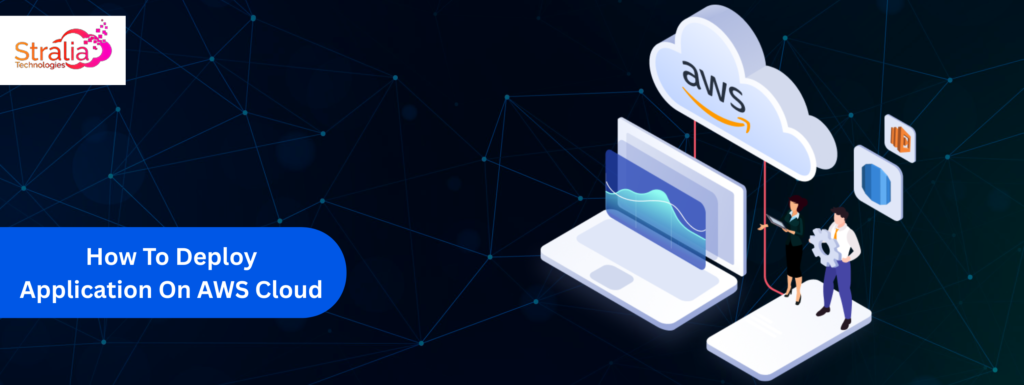As cloud technology becomes the foundation of modern business infrastructure, many organizations are beginning to search for cloud computing companies near me to stay competitive, agile and cost effective. The demand is no longer limited to multinational corporations. Small and medium sized businesses are also looking for localized, reliable cloud expertise to streamline operations, improve data accessibility and ensure business continuity.
But with so many options available, how do you evaluate the right partner? What should you truly expect when working with the top cloud computing companies in your area?
Let’s break down what businesses should look for when partnering with a reputable cloud provider.
The Rising Demand For Localized Cloud Services
With increasing reliance on cloud infrastructure, businesses are now prioritizing cloud computing companies near me for improved compliance, reduced latency and faster support. Many of these providers are also recognized among the best cloud computing services for business, offering the right balance of performance and proximity. Local providers are better positioned to ensure data remains within required jurisdictions and meets specific regulatory standards. Their proximity to operational environments allows them to deliver low latency connectivity, which is vital for real time applications, edge computing and time sensitive workloads. Additionally, local cloud partners offer quicker response times, on-site assistance and deeper insights into market specific needs. This makes them a strategic choice for organizations seeking both technical agility and operational resilience.
Effective cloud solutions are essential for all businesses in today’s time, if you want any guidance regarding cloud services then feel free to contact Stralia Technologies..
Expectations From Cloud Computing Companies Near Me

Businesses engaging with cloud computing companies near me should expect enterprise grade cloud computing services across infrastructure, security and support. Here are the core offerings that technically capable providers should deliver:
1. Full Stack Cloud Services
From Infrastructure-as-a-Service (IaaS) to Platform-as-a-Service (PaaS), top providers offer end to end solutions, including:
- Compute, storage and networking
- Database management systems
- Serverless computing environments
- Virtualization and Kubernetes clusters
- Cloud native app deployment pipelines
These cloud computing services must integrate seamlessly with your existing systems, allowing smooth migration and flexible deployment.
2. Automated Cloud Migration
Migration is not just about transferring data. It includes application mapping, compatibility checks, phased deployment and post migration validation. Top providers use automated tools and migration frameworks to ensure minimal downtime and full data integrity.
3. Security & Identity Management
Security is central to cloud architecture. Providers should implement:
- Zero Trust access models
- Real time threat detection
- Role based access control (RBAC)
- Encryption (AES-256) at rest and in transit
- MFA and secure identity federation across cloud accounts
4. Compliance & Governance
Working with cloud computing companies near me ensures better alignment with regional compliance standards such as:
- ISO/IEC 27001
- GDPR and Australian Privacy Principles
- Industry specific mandates like HIPAA or PCI DSS
5. Service Level Guarantees and Support
Expect 99.9%+ uptime SLAs, proactive monitoring, real time performance dashboards and 24/7 technical support from certified cloud engineers.
You May Also Like: Is It Time To Consider Serverless Cloud Computing?
Top Cloud Computing Companies In The Global Ecosystem
Beyond local vendors, the global cloud landscape is dominated by a few major hyperscalers that continue to define industry standards in reliability, security and service breadth. These top cloud computing companies bring cutting edge infrastructure, high performance environments and developer centric tools to businesses of all sizes. For decision makers evaluating why is cloud computing important for business, understanding the core strengths of these providers becomes essential when planning an effective and future-ready cloud strategy.
Amazon Web Services (AWS)

Source: Amazon
AWS remains the most mature and widely adopted cloud platform, offering over 200 fully featured services. Its ecosystem includes compute services like EC2, scalable storage with S3 and serverless computing through AWS Lambda. With availability zones across the globe, Amazon Web Services ensures high availability, robust failover and flexible architecture design for everything from small workloads to enterprise scale deployments.
Microsoft Azure

Source: Microsoft
Microsoft Azure is deeply integrated with Windows based environments and is a natural fit for organizations already using Microsoft technologies. Microsoft Azure supports hybrid cloud configurations, edge computing and enterprise security through services like Azure Active Directory and Sentinel. Its AI and machine learning platforms are also popular among data science teams building predictive models and intelligent applications.
Google Cloud Platform (GCP)

Source: Google
GCP has built a strong reputation in the fields of data engineering, real time analytics and application modernization. Google Cloud Platform services like BigQuery for data warehousing, Vertex AI for machine learning and Google Kubernetes Engine (GKE) for container orchestration are favored by companies that prioritize innovation and scalable microservices architectures.
Alibaba Cloud

Source: Alibaba
Alibaba Cloud are more regionally focused, is gaining ground globally. It offers powerful infrastructure services, including Elastic Compute Service (ECS), PolarDB for high performance databases and an extensive Content Delivery Network (CDN). Alibaba Cloud is a platform often used by businesses expanding into Asia due to its regulatory alignment, multilingual support and localized compliance frameworks.
While these cloud providers deliver enterprise grade performance and tools, effective implementation often hinges on expert guidance. Working with certified consultants or cloud computing companies near me helps businesses tailor deployments to their unique needs, optimize cost structures and ensure long term scalability.
Why Local Expertise Still Matters?
While global cloud providers offer vast infrastructure and service breadth, partnering with cloud computing companies near me adds a critical layer of contextual and operational value, particularly for organizations with specific compliance, performance or integration needs.
- Reduced Latency: Local data centers and infrastructure minimize network delays, which is essential for applications requiring real time performance and consistent uptime.
- Regulatory Alignment: Regional providers are well-versed in local data protection laws, industry specific compliance standards and government reporting requirements, helping you avoid legal risks.
- Optimised Solutions: Unlike standardized offerings from hyperscalers, local cloud companies build architectures that are purpose fit for your business workflows, workloads and infrastructure maturity.
- Immediate Support: Being geographically closer allows for quicker on-site intervention, faster deployment cycles and smoother communication between technical teams.
Combining local expertise with enterprise grade cloud technology results in smarter implementation, operational efficiency and long term stability.
What To Look For In A Cloud Provider Near You?
Selecting a cloud computing partner is more than just comparing prices or service tiers. It involves assessing the provider’s technical capabilities, infrastructure maturity, security posture and ability to meet your operational needs. For those exploring cloud computing for small businesses, it is especially important to consider proximity, support availability and regional compliance. A well matched provider ensures smoother cloud adoption, optimized performance and long term scalability.
- Infrastructure Strength: Ensure the provider offers scalable and redundant infrastructure to support high availability and business continuity.
- Compliance & Certifications: Look for adherence to standards like ISO 27001, SOC 2 and GDPR, especially if you manage regulated or sensitive data.
- Deployment Flexibility: Check if they support hybrid cloud, multi cloud or edge computing models based on your business architecture.
- Security Protocols: Evaluate their data protection measures, including encryption, identity and access management (IAM) and incident response capabilities.
- Service Level Agreements (SLAs): Clear SLAs for uptime, support and disaster recovery are essential for operational reliability.
- Local Support & Presence: Prefer providers that offer nearby data centers, real time support and onsite consultation when required.
- Proven Experience: Review case studies or testimonials from businesses with similar workloads and compliance requirements.
- Technology Partnerships: Providers like Stralia Technologies often work closely with hyperscalers (AWS, Azure, etc.), enabling advanced cloud integrations with local support.
How Stralia Technologies Connects Global Cloud With Local Delivery
Stralia Technologies bridges the gap between global cloud platforms and local business needs by combining the scalability of hyperscalers like AWS, Azure, Google Cloud and Alibaba with region specific expertise. By understanding local regulatory requirements, connectivity challenges and performance expectations, Stralia Technologies helps businesses deploy, optimize and manage cloud environments that are both globally powerful and locally efficient. From solution architecture to post deployment support, the company ensures seamless execution tailored to the unique demands of each client’s operational landscape.
Our Clients Feedback
| Stralia Technologies played a crucial role in our journey by providing AWS solutions. Their expertise saved us money and improved our performance. They’re not just a service provider; they’re like the best partners. – Lisa Turner, IT Manager |
| When we connected with Stralia Technologies for Azure Consulting, it felt like we found a trusted guide in the Azure maze. They transformed our business, making Azure feel like a breeze. – John Smith, Chief Technology Officer |
| Our journey into Google Cloud with Stralia Technologies was like opening a door to a whole new world in the cloud. They brought fresh ideas, redefined our processes and added a whole lot of agility to our business. – Emma Davis, Operations Director |
Frequently Asked Questions (FAQs)
Que1. Is cloud computing high in demand?
Ans: Yes, cloud computing is in high demand due to its scalability, cost efficiency and support for remote operations. Businesses of all sizes rely on cloud solutions to improve agility, data access and innovation in today’s digital world.
Que2. Do I need Python for cloud computing?
Ans: No, Python is not mandatory for cloud computing, but it is highly useful. Many cloud platforms support Python for automation, scripting and AI/ML tasks. It is widely adopted due to its simplicity, making cloud development more efficient.
Que3. Which cloud skill is best?
Ans: The best cloud skill depends on your goals, but in-demand skills include cloud architecture, DevOps, security and data engineering. Mastering platforms like AWS, Azure or Google Cloud with certifications can offer strong career opportunities.
Conclusion
In this blog, we looked at the evolving cloud landscape, the rise of local providers and how businesses can make smarter cloud decisions. As organizations seek more agility and control, partnering with trusted cloud computing companies near me becomes a practical move for reducing latency, meeting compliance needs and ensuring tailored support. With the right cloud strategy and a capable provider, businesses can unlock real value and scale with confidence.
Ready to elevate your cloud strategy? Partner with Stralia Technologies for optimised, future-ready cloud solutions built to match your local and global ambitions.














Leave a Reply